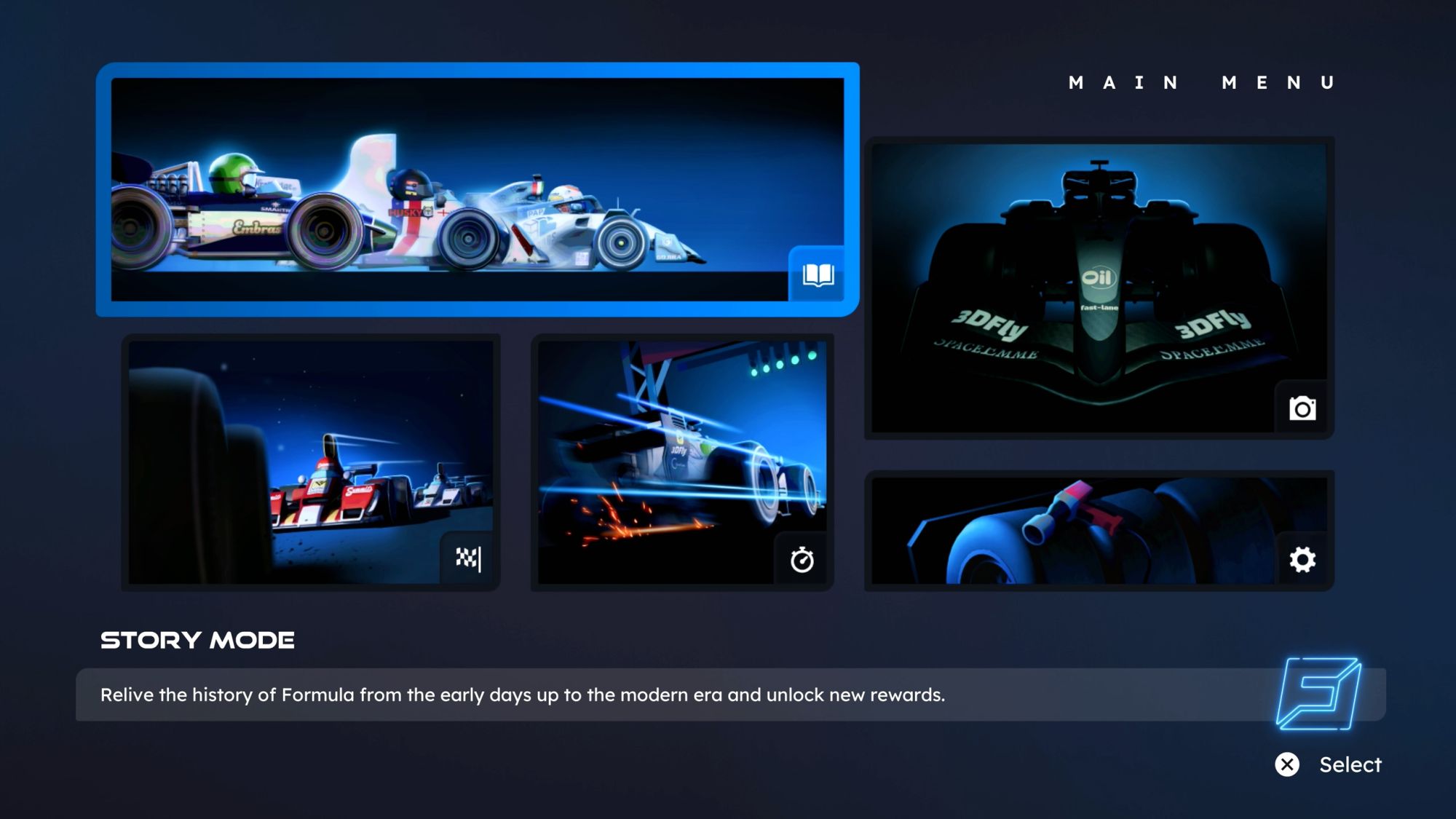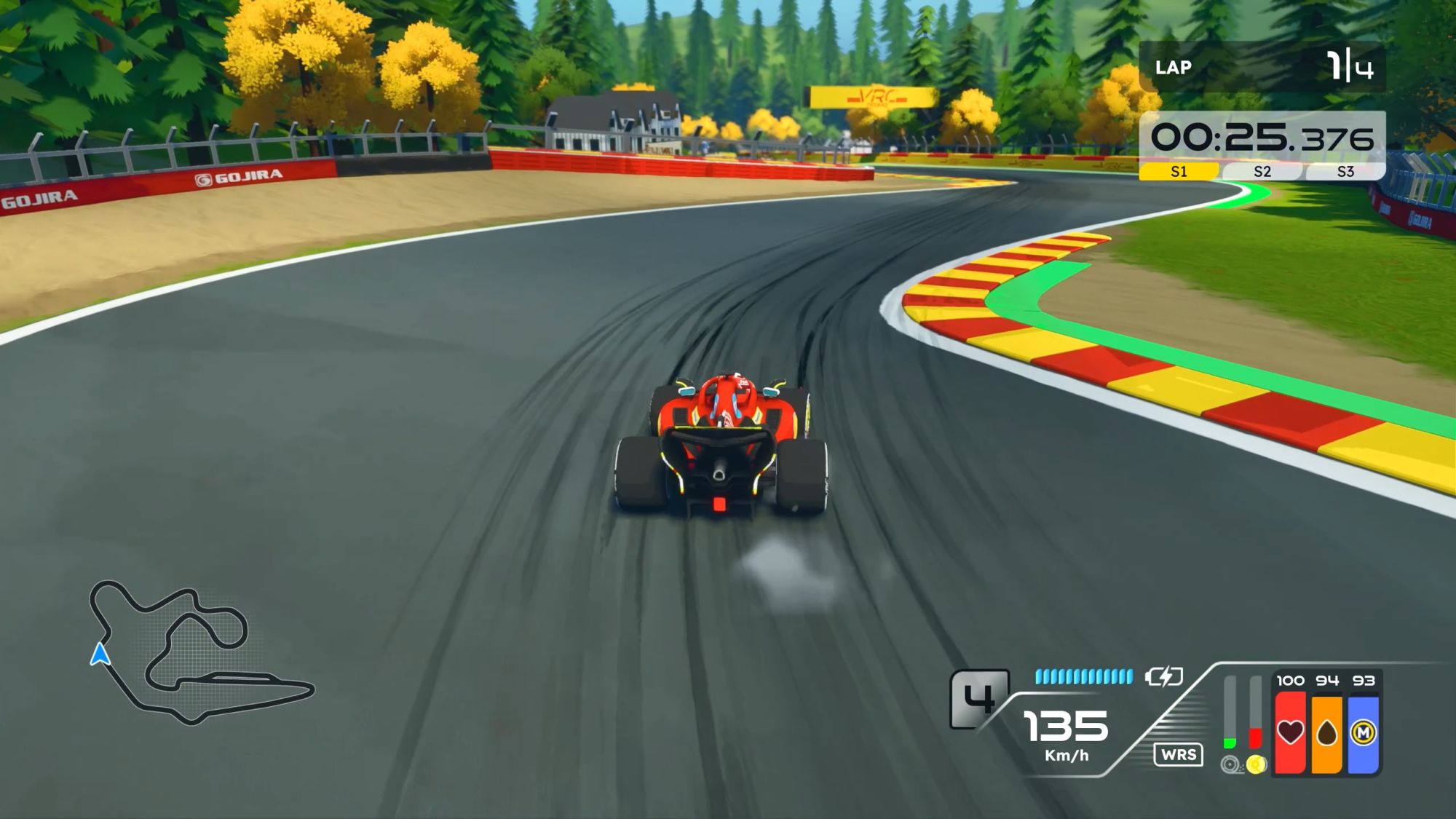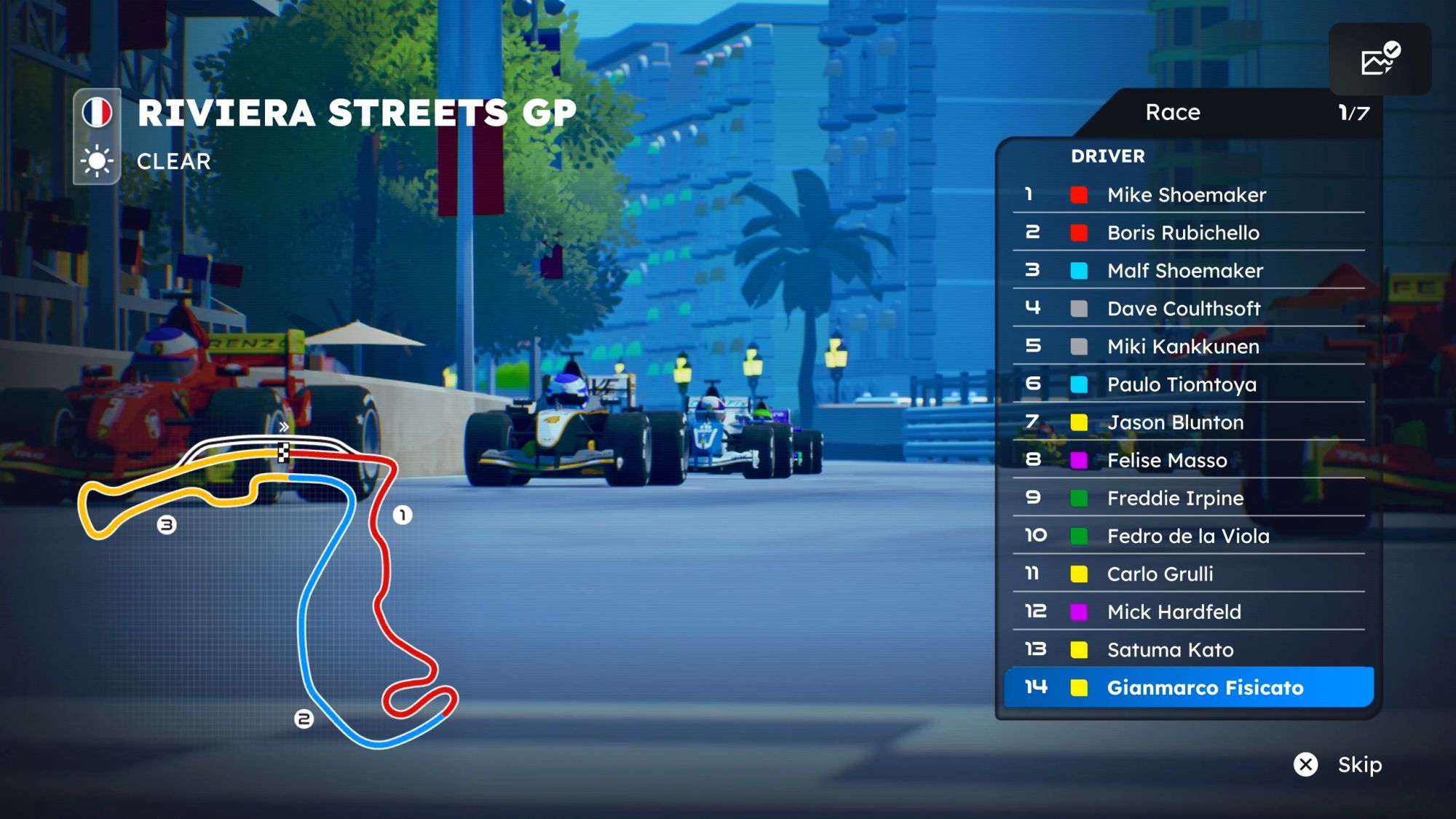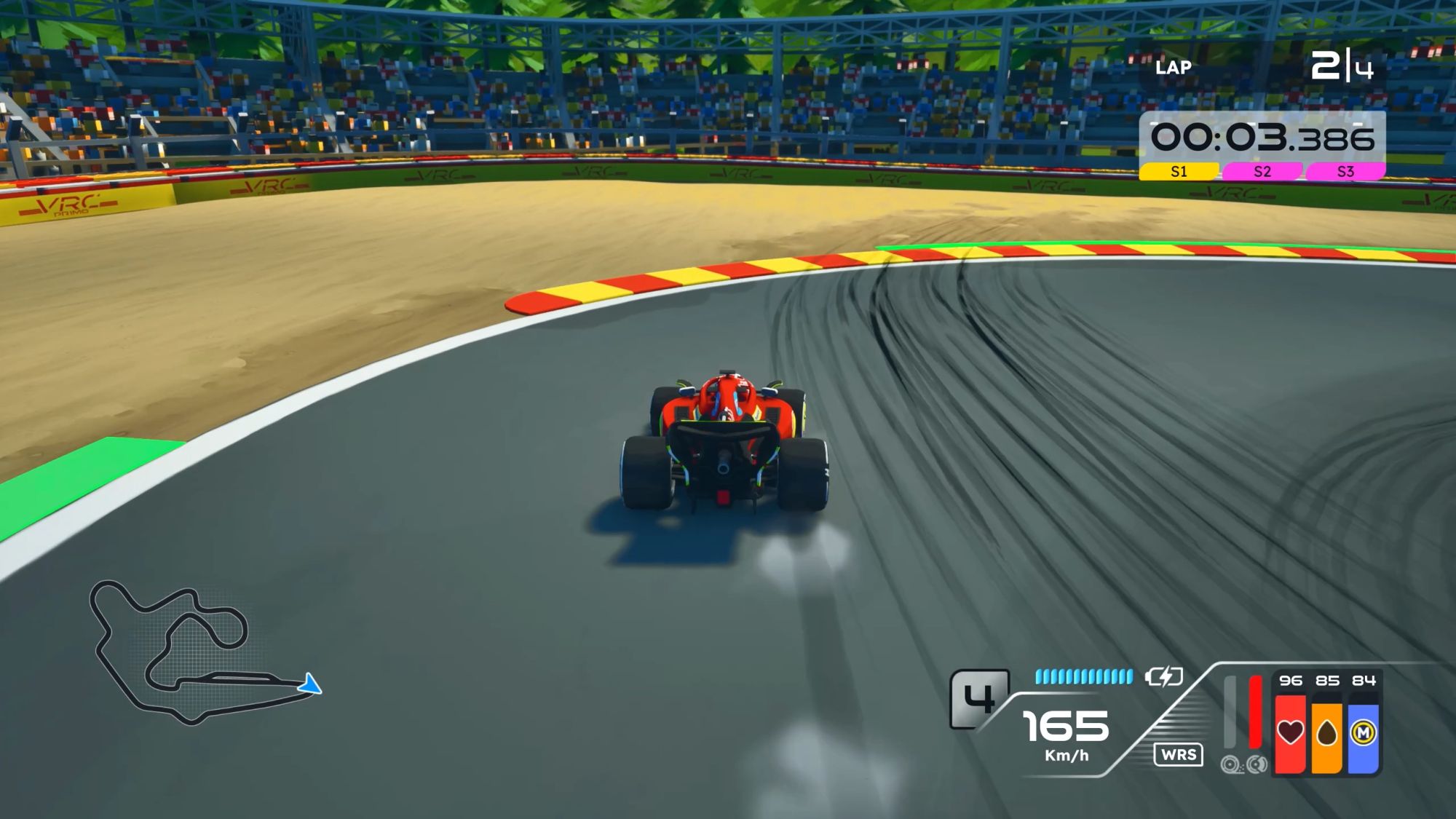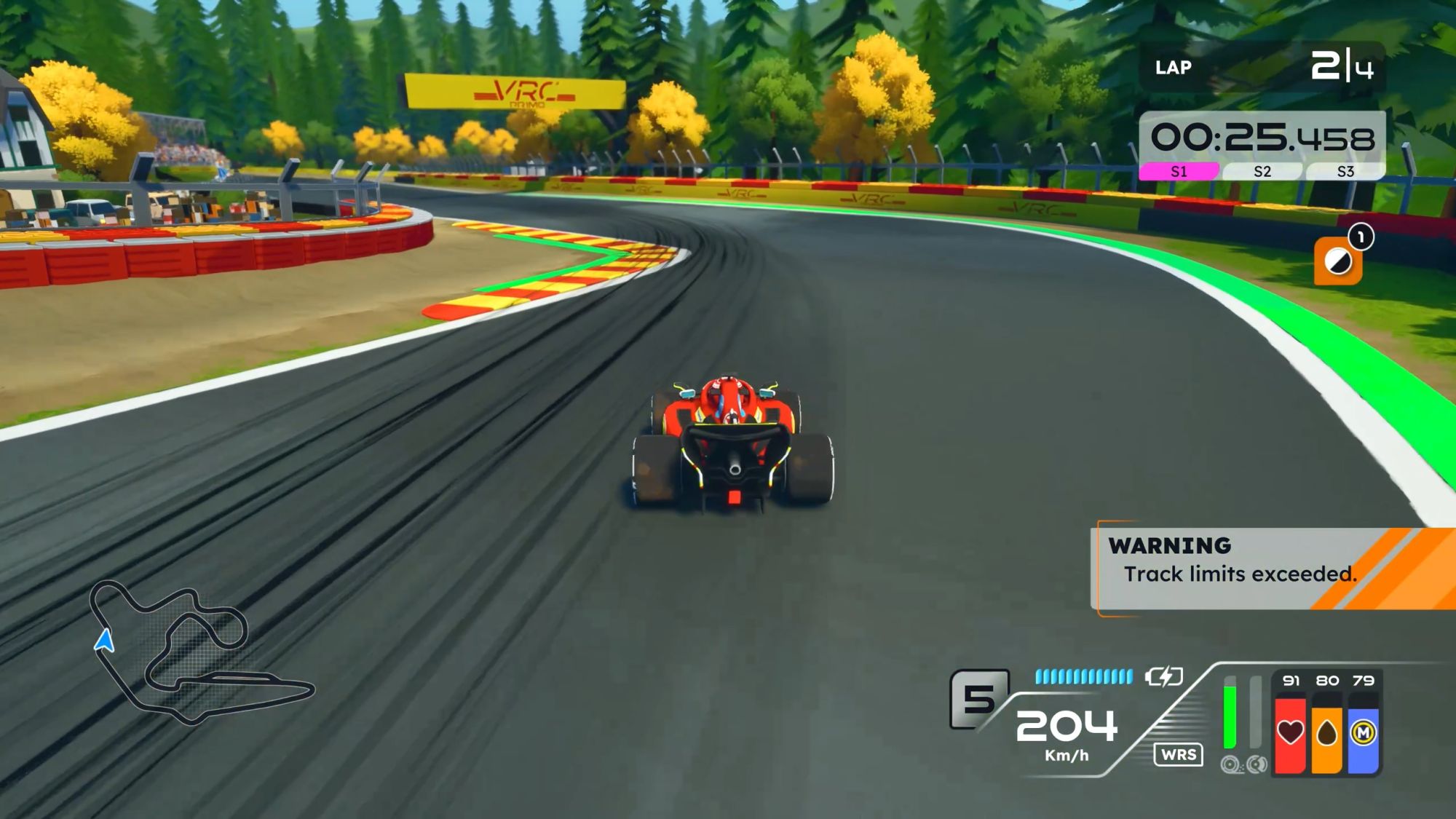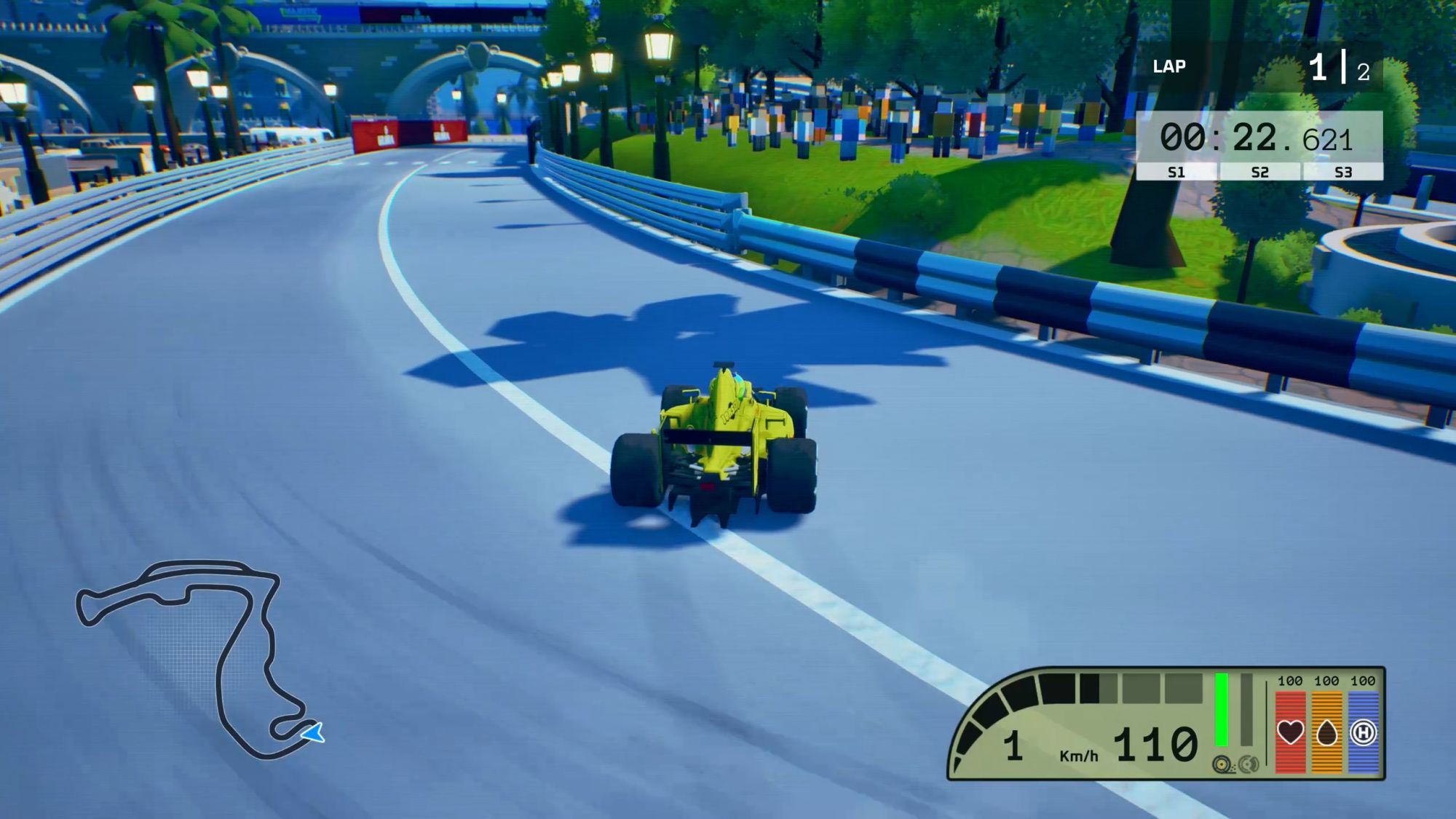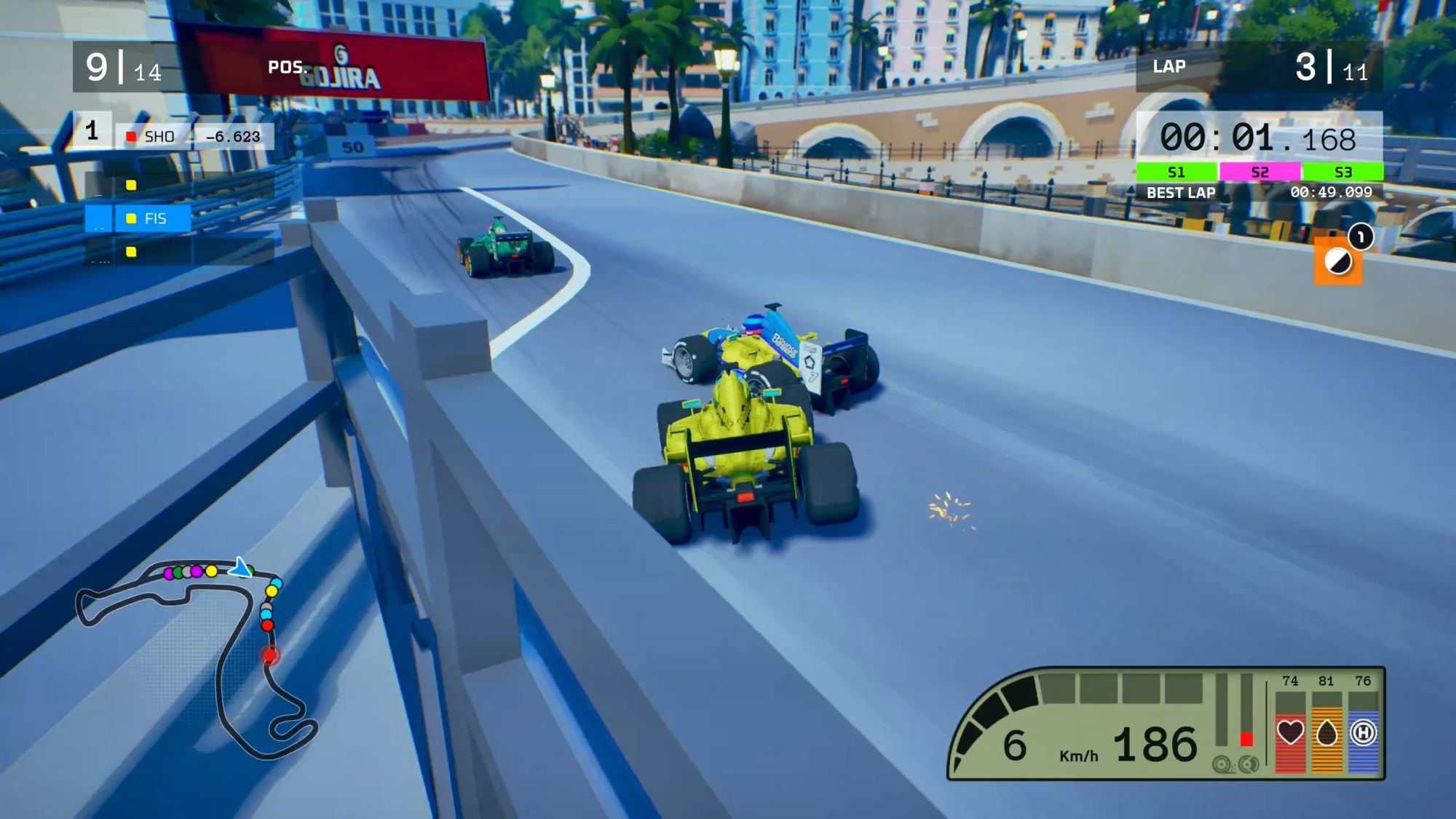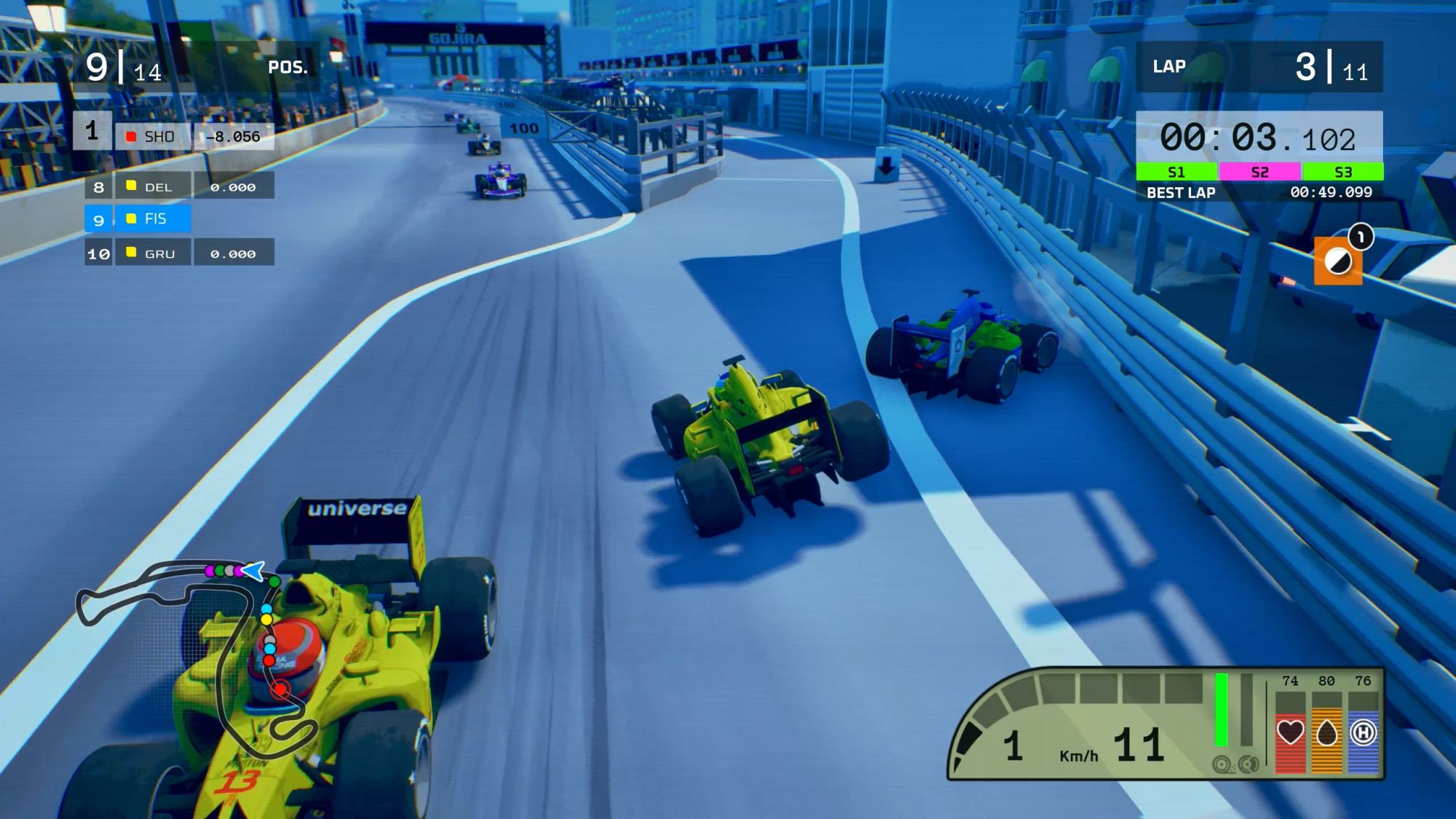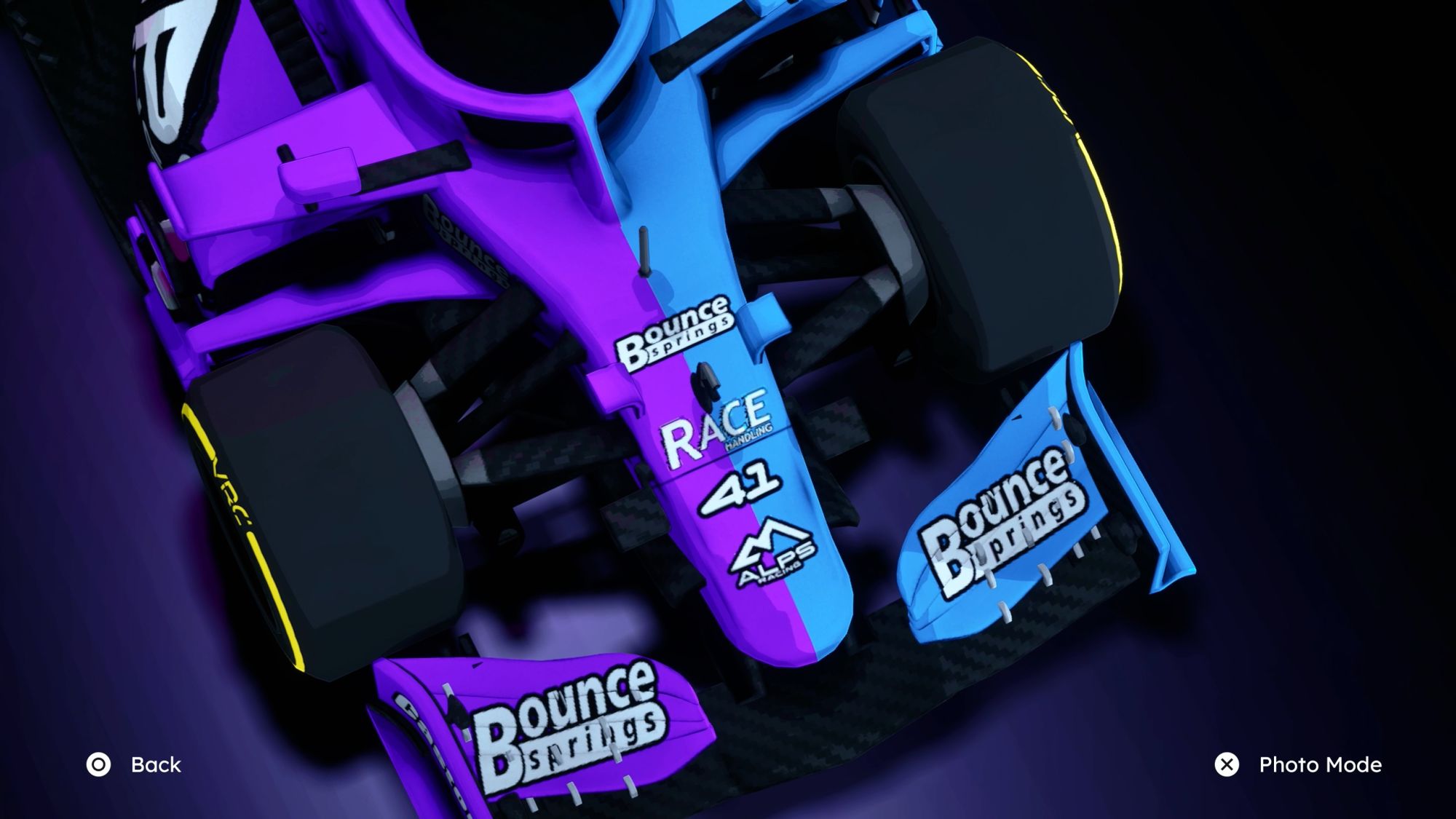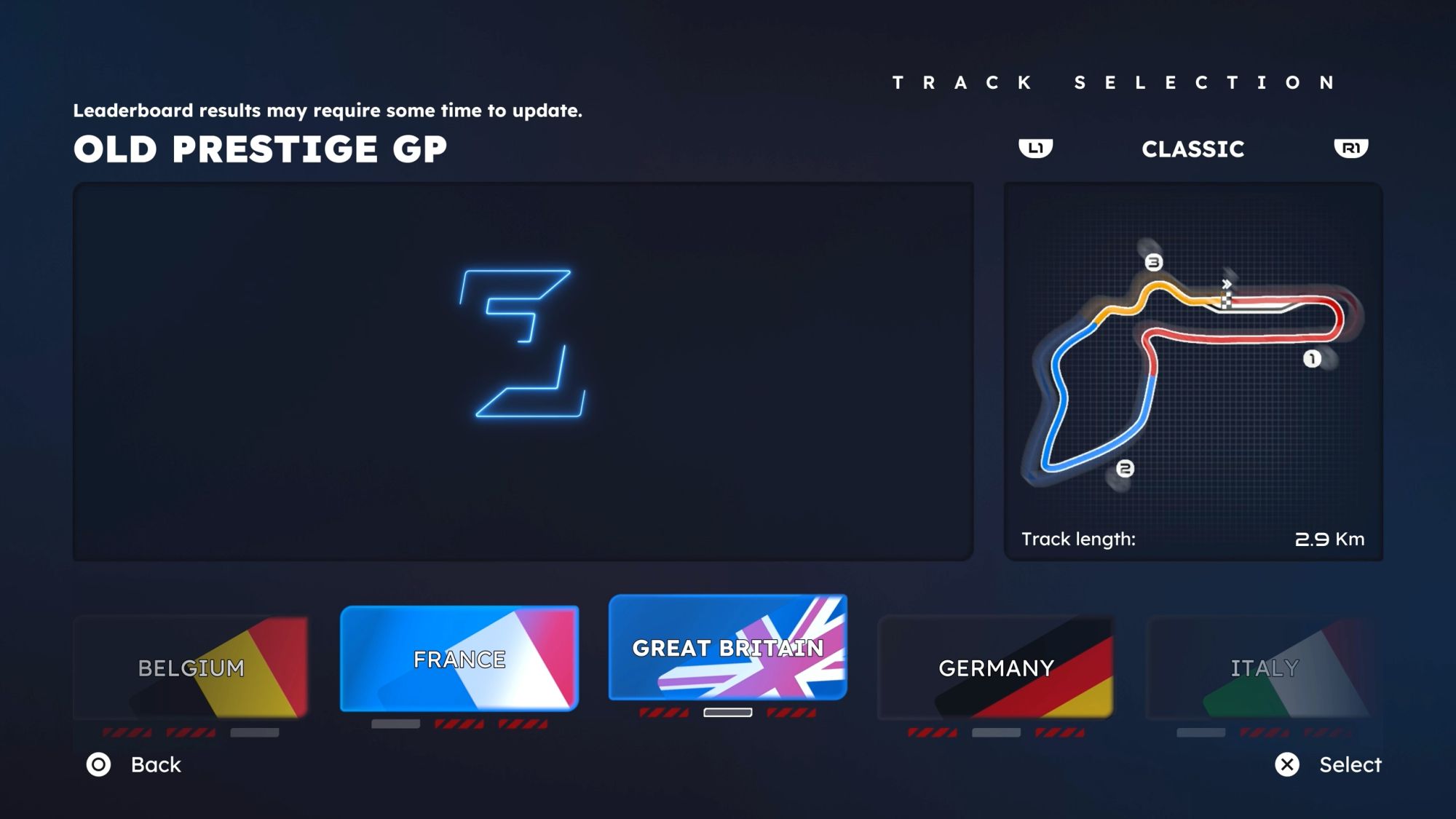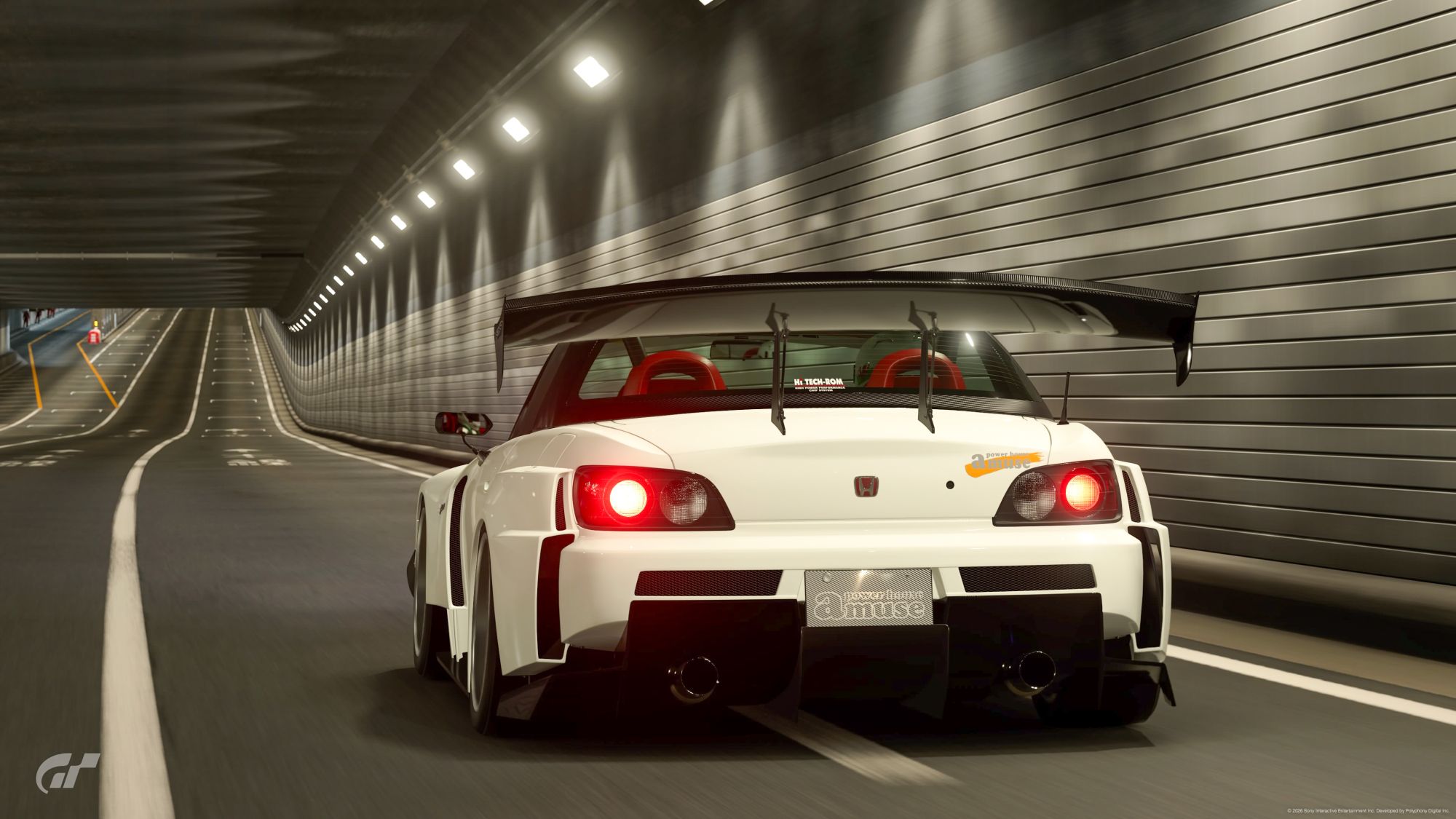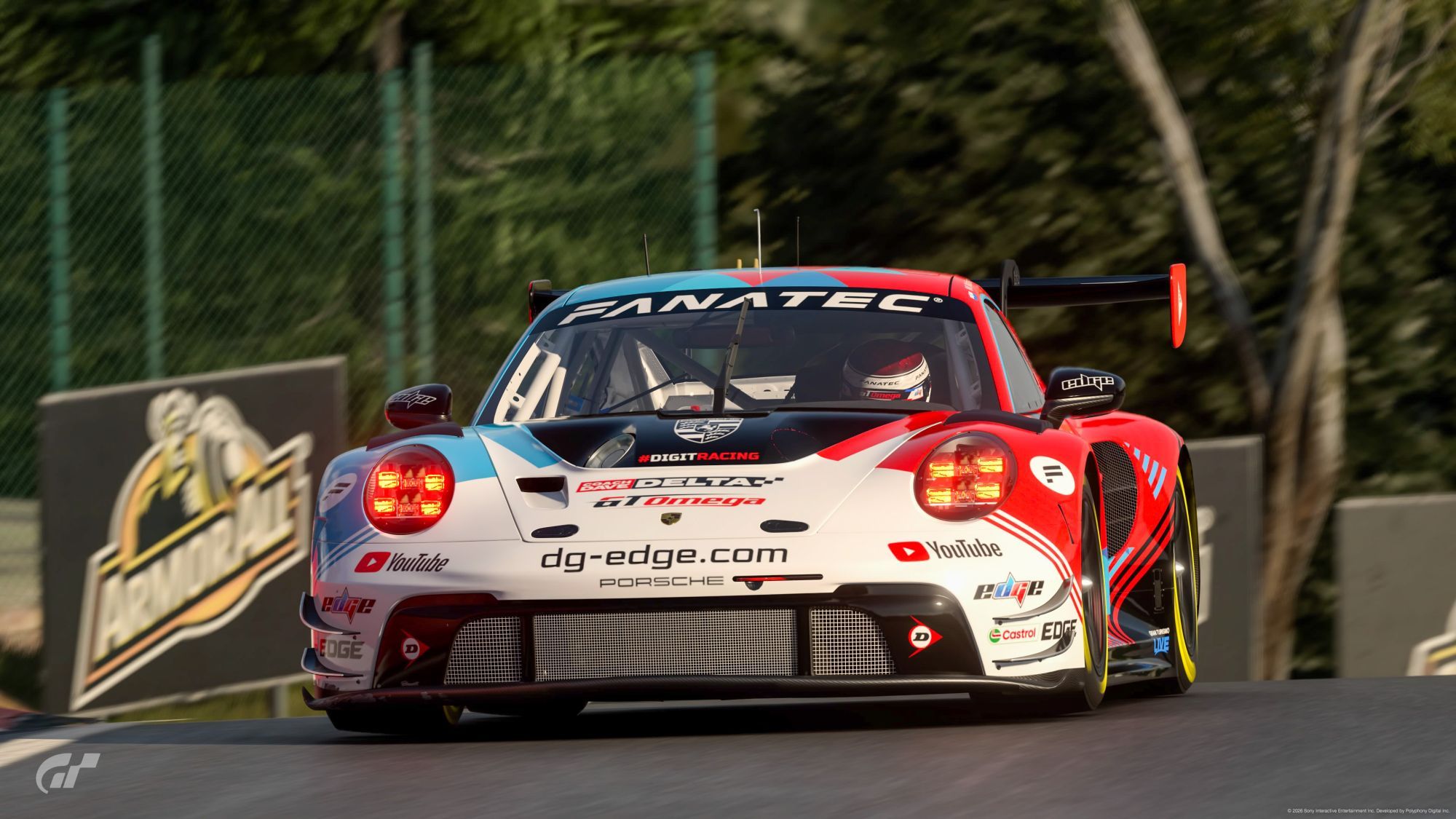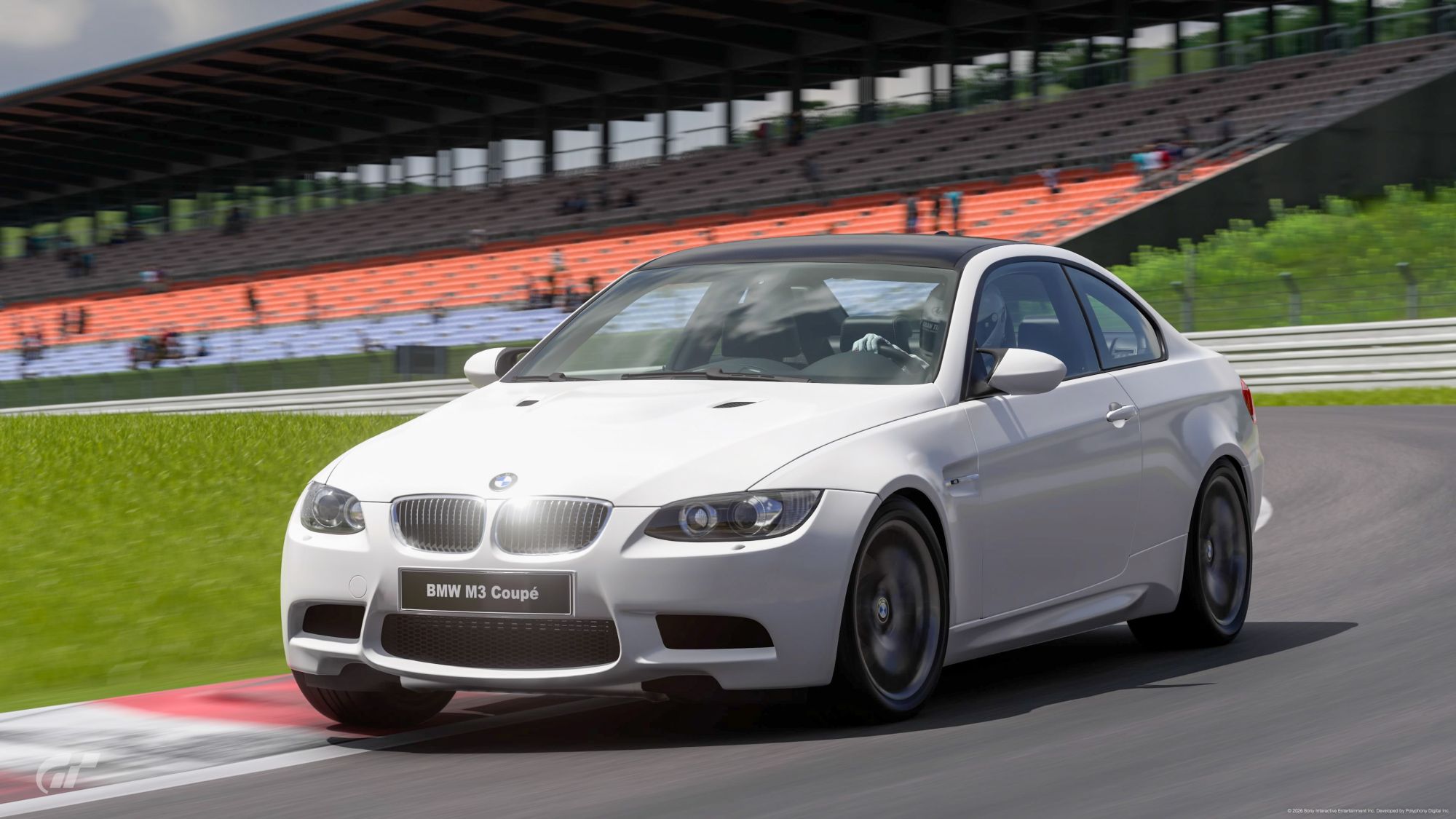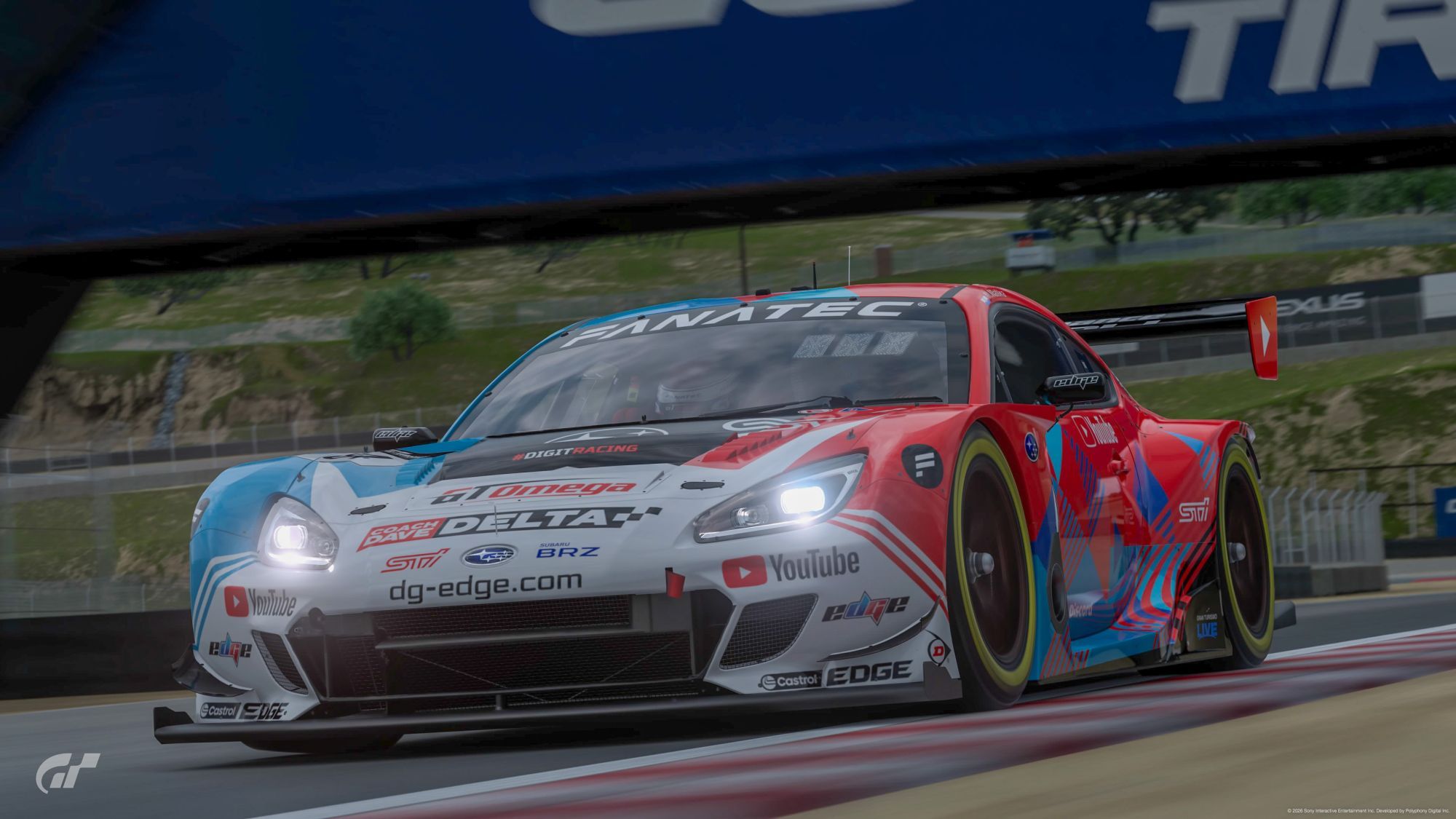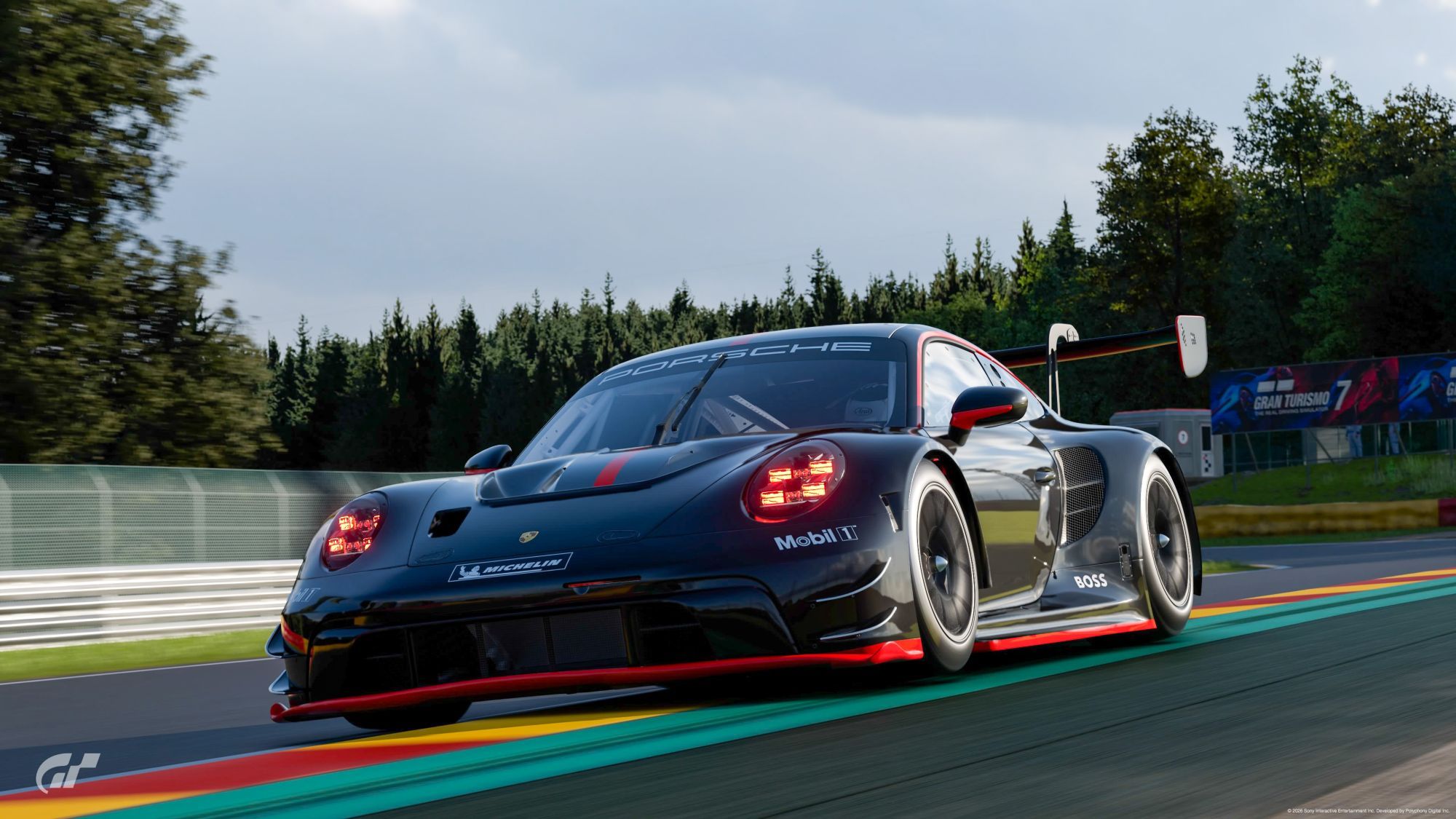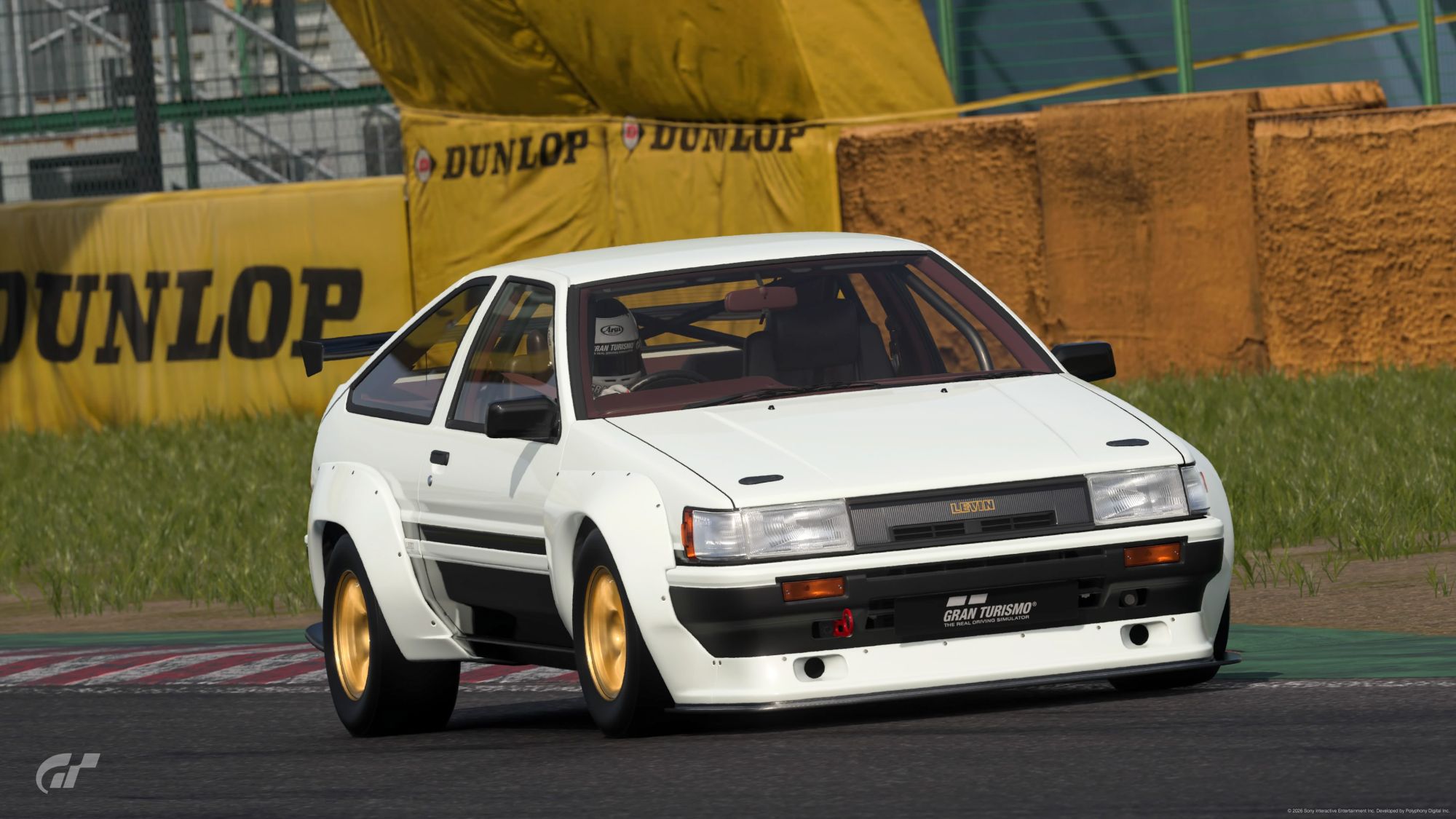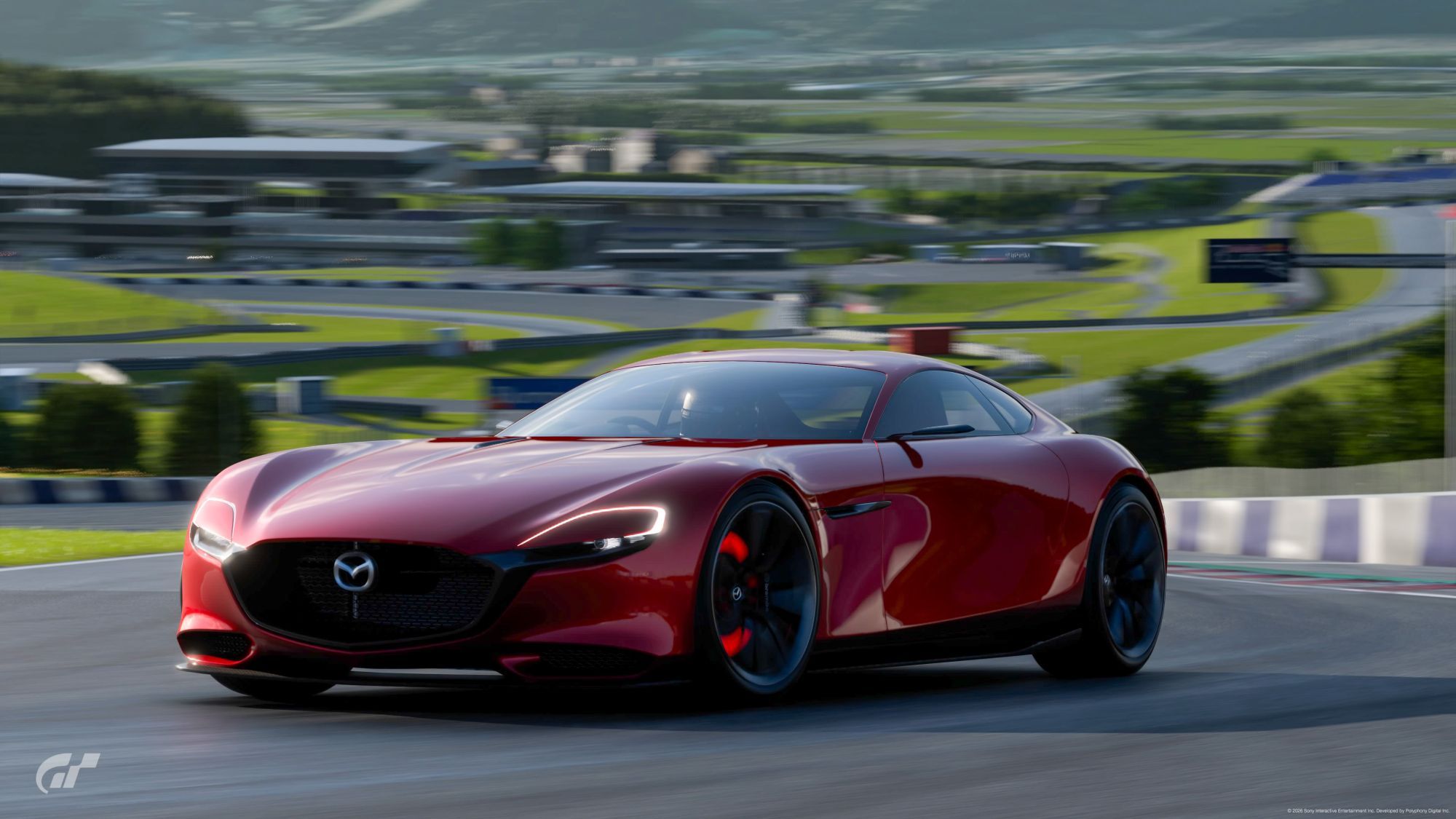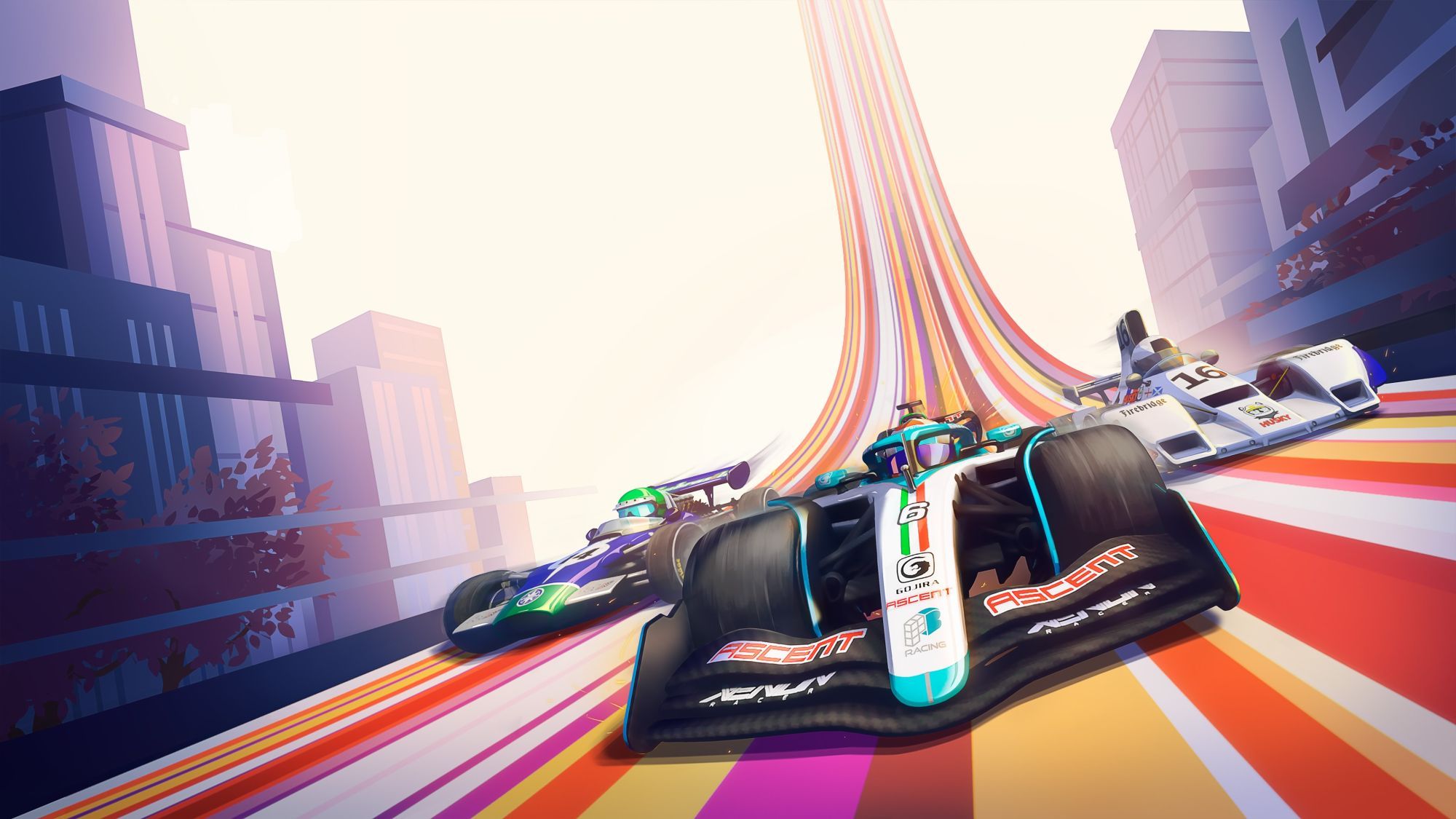
Formula Legends is a vibrant racing game that takes players on a nostalgic journey through the golden decades of single-seater motorsport. While it is not officially tied to Formula 1, the playful driver names, miniature car designs, and historical backdrops make its inspiration unmistakable. Teams like Jorsey (a wink at Jordan), Penault (Renault), and drivers such as Jason Blunton, Felise Masso, and Freddie Irpine bring a lighthearted parody to life, wrapped in a toy-like aesthetic that feels both familiar and refreshing.
The game launched on September 18, 2025, across PC, PlayStation 4 and 5, Xbox One, Xbox Series X|S, and Nintendo Switch. Developed by 3DClouds, known for titles like Allstar Fruit Racing and Hot Wheels Monster Trucks Stunt Mayhem, this marks their most ambitious project yet, aimed at attracting true motorsport fans.
A Love Letter to Motorsport History
Spanning seven decades, from the 1960s to the 2020s, Formula Legends offers a career mode packed with unlockable cars, tracks, and drivers. Circuits evolve with the passage of time, from straw bales lining the roads in the 60s to the safety barriers of the modern era. Cars are reimagined as miniature machines with whimsical flourishes, yet they retain the design details that make each era iconic. Even features like the cheeky Wind Reduction System, or WRS, add a playful twist.
The game boasts more than 30 cars, 60 drivers, and 14 lovingly recreated track locations. The career mode provides a steady sense of progression as you unlock content through points, story cups, and mileage goals. It is clear the developers studied motorsport history closely, distilling what made each era memorable and repackaging it with a lighter, more approachable tone.
This is not a substitute for an official F1 title, nor does it pretend to be. Instead, Formula Legends positions itself as a relaxed alternative, a game to enjoy when you want a taste of racing without the intensity of high-stakes simulation.
Simulation Meets Arcade
3DClouds describes Formula Legends as a blend of simulation and arcade racing. Tire wear, fuel management, weather effects, and pit stop mini-games add touches of realism. At the same time, assists like traction control, ABS, and the amusing WRS system keep the game approachable for newcomers.
Despite the miniature style, the cars are not simple to handle. You can lose control, spin out of corners, or lock up the brakes if you push too hard. Track limits are enforced, and invalidated laps remind you that mistakes matter. Yet the physics stop short of true simulation, landing the game more firmly in arcade territory. It captures the essence of motorsport but avoids becoming overly demanding.
Flaws and What Can Be Fixed
Unfortunately, the on-track experience is where Formula Legends falters. Handling feels imprecise, reminiscent of early PlayStation racing games without analog support. Steering inputs lack accuracy, often leaving players fighting the controls rather than mastering them. Rival AI only worsens the experience, fluctuating wildly between sluggish and unbeatable, often ignoring the same handling quirks players struggle with.
To be honest, the collisions feel a little awkward, which is exactly what you might expect from an arcade racer like this. I would not classify it as a simulation in any way, nor do I think it is meant for that kind of audience. Still, it is an interesting title. Even in my two-hour session, when I crashed or spun into another car, the outcome was always unpredictable. I never really knew what was going to happen, but at the same time those moments were surprisingly fun and added a sense of enjoyment to the chaos.
Driving Line and Physics
After spending some time driving, I noticed that the optimal racing line really is the only place where you get proper grip. Even the slightest move off it results in a big loss of speed and performance. That is not what you would expect from a simulation, but here it is very noticeable. Sometimes even braking is not enough to stop the car, so I found myself relying less on the brakes and more on carefully lifting off the accelerator. Letting the car roll into the corner and then feathering the throttle seemed to work better than trying to brake heavily. It was surprising, and perhaps the lack of precise feedback while steering only amplified that effect. In the end, this reinforced my impression that Formula Legends should be seen as an arcade experience, not a simulation.
Final Verdict
Formula Legends succeeds as a tribute to motorsport history. Its miniature aesthetic, witty parodies, and thoughtful progression system make it a delightful package at a fair price of $19.99. For casual racing fans, it offers a playful break from the intensity of full simulators.
However, the shortcomings in handling, AI, and physics hold it back from greatness. Without online or split-screen multiplayer to cushion those flaws, its long-term appeal feels limited. Still, I can't shake the feeling that most of these small issues could be ironed out with a few solid updates. Time will tell whether those improvements arrive, or if this is simply what we're left with.

